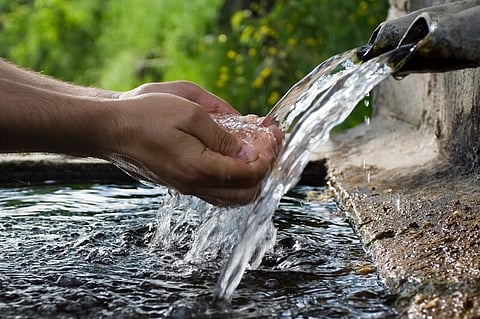
- Home
- Live Blog
- Breaking News
- Top Headlines
- Cities
- NE News
- Sentinel Media
- Sports
- Education
- Jobs

Guwahati: Groundwater contamination is one of the major threats to the mankind of the universe today and such an incident of groundwater contamination has been noticed in Kohima, the capital city of Nagaland. What is more worrying is to know is that the level of contamination in the northeastern state has gone beyond the limits set by the World Health Organisation (WHO).
As per the WHO guidelines, water samples collected from different water sources in Kohima reveals a high level of contamination with ammonia and nitrite present in it. The very level of ammonia and nitrite found in the groundwater of Kohima goes beyond the drinking permissible limit for potable water set by the WHO guidelines.
This is a common problem for the Kohima residents to face an acute shortage of drinking water during the dry season. This has been affecting the lives of Kohima residents to a great extent.
The water samples from the city were tested and analyzed by Dr. Nesatalu Hiese, Scientist ‘D’, Nagaland Science & Technology Council (NASTEC) who have come to this conclusion that most water samples collected from the city contain Ammonia, Nitrate, Phosphate and Iron and this contamination is above the permissible limit.
The scientist has analyzed 133 water samples under the project and sadly, 121 water samples are found to have a higher level of Ammonia. Another 64 samples of water contain Nitrite, 100 samples contain Phosphate and 23 samples contain Iron. The water samples collected mostly from ring wells and deep tube wells are found to be highly contaminated. On the other hand, the contamination was not much in surface water samples.
Dr Hiese said, “What we have observed from the field and the analysis is that it’s more or less from the human and animal excreta.”
As water contamination can pose as a major threat to people’s health, a serious study and investigation into the matter is a must to tackle the issue. Under such circumstances, it is a muist for people to stop open defecation, whether it is of human or animal.